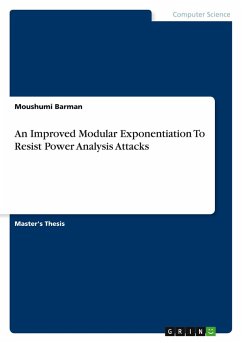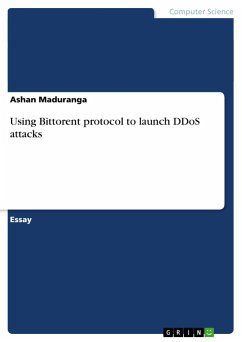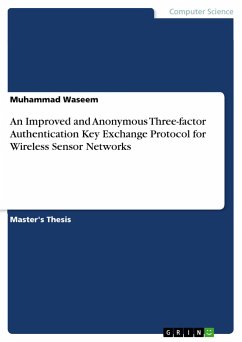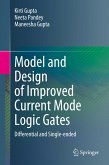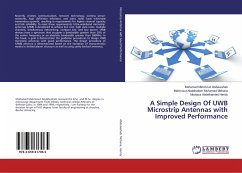Master's Thesis from the year 2019 in the subject Computer Science - IT-Security, grade: A, , course: Computer Science and Engineering, language: English, abstract: Modular exponentiation has been the primary operation in most of the asymmetric cryptosystems. However, for large exponents which serves as the keys for encryption and decryption, conventional way to compute modular exponentiation is very time consuming. Hence, different binary methods based on bit wise "squaring-multiplication" operations is more widely used. However, these approaches are vulnerable to side-channel attacks, specially timing and power analysis attacks. Hence, these approaches are improved so that such attacks can be mitigated. Two processes have been designed based on "Multiply-Always" binary method which injects dummy multiplications so that the original multiplications can remain intact. The two processes are being invoked based on a random variable which generates either 0 or 1. With these randomized modular exponentiation, the proposed approach can resist simple and differential power analysis attacks to a large extent. The proposed approach has been implemented using conventional "squaring-multiplication" and "Montgomery-Ladder" methods. Further, the work has also been extended to CRT-RSA which is widely used for fast computation. The analysishas been done for different key sizes of 1024 bit, 1536 bit and 2048 bit RSA & CRT-RSA.
Bitte wählen Sie Ihr Anliegen aus.
Rechnungen
Retourenschein anfordern
Bestellstatus
Storno

